Suicide rates of Sydney veterinarians on the rise
Veterinarians are up to four times more likely to take their own lives, prompting vets from Sydney’s North Shore and Eastern suburbs to speak up.
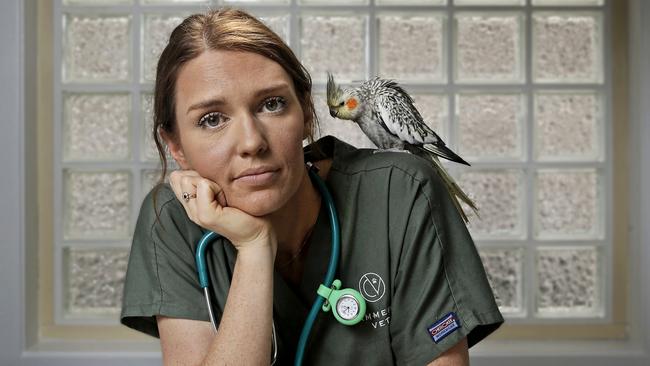
Wentworth Courier
Don't miss out on the headlines from Wentworth Courier. Followed categories will be added to My News.
As the original home of the TV series Bondi Vet, Bondi Junction Veterinary Hospital was recognisable worldwide.
But it hit the headlines for all the wrong reasons last year when a staff member accidentally gave a cat that was in its care to the wrong owner.
They were both tortoiseshell coloured and had similar names, and the cat was picked up by a relative of the owner, who didn’t realise the mistake.
The practice’s director, Dr Julia Crawford, apologised profusely for the mix-up but was left shocked by the level of abuse directed at the clinic via platforms such as Facebook.
“The pile-on on social media was something that we never thought was possible,” she says. “We got death threats from people all over the world. It was incredibly distressing for everybody.”
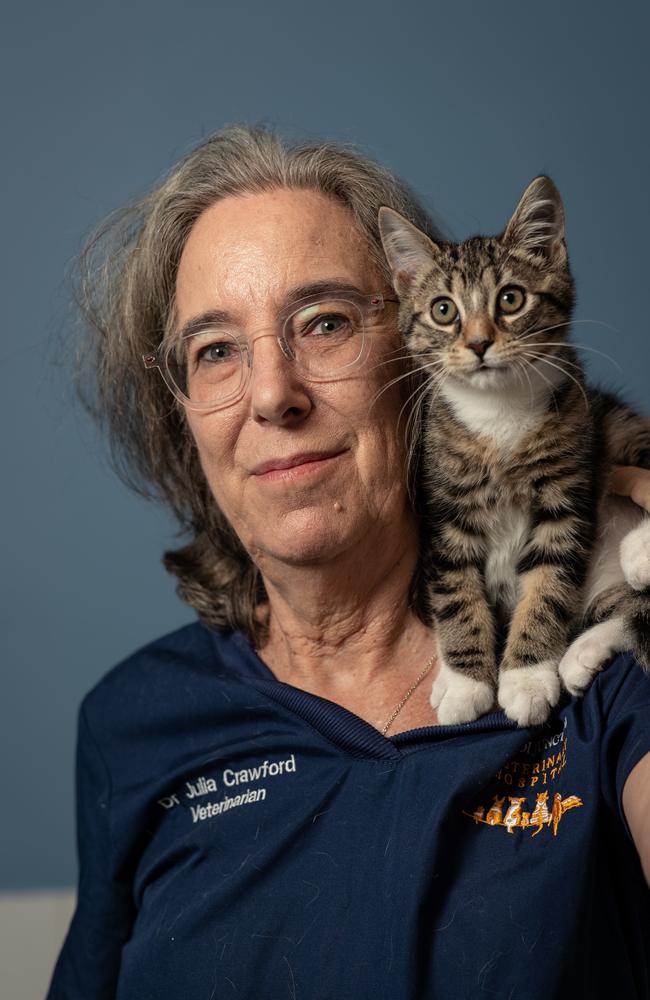
When Neutral Bay vet Dr Karmen Fong was a new graduate, a family brought in a pet suffering from tick paralysis. The dog was struggling to breathe.
Dr Fong knew she could have made it better, but the family couldn’t afford the $65 for the consultation.
“I was looking at this animal thinking, ‘I have the ability to fix you, but this is a small business, and we don’t have Medicare for pets’,” she says.
“If I did nothing, the dog would have suffocated to death. As a new vet you’re allowed to perform acts of euthanasia to ease suffering. But I woke up multiple nights thinking I could have saved this patient and I didn’t. It shook me to my core.”
This are just some examples of the kind of pressures vets face in their daily lives, with high-stress environments, long hours, low pay, poor work-life balance and managing clients’ expectations all contributing to poor mental health in the industry.
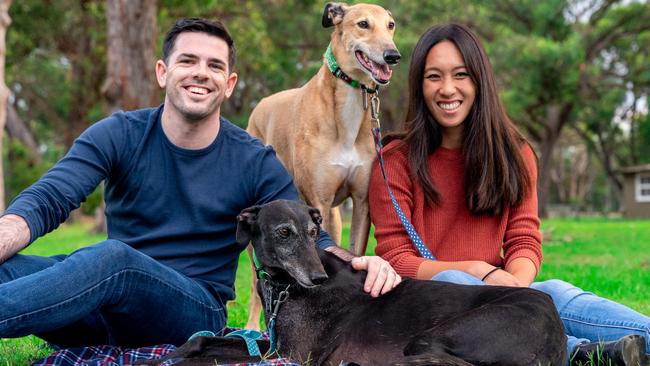
HIGHER RISK
According to the Australian Veterinary Association, several studies have found that veterinarians appear to be at a significantly higher risk of suicide than the general population.
While other healthcare professionals such as doctors, pharmacists, dentists and nurses are around twice as likely to die by suicide than the general population, veterinarians have been shown to be up to four times more likely to fall victim to suicide.
“The thing about vets is that we’re successful,” Dr Crawford says.
“We know how to do it and we have a very high success rate. The same goes for our veterinary nurses and veterinary technicians.”
Dr Crawford says people’s relationship with pets has become more intense post-Covid.
Animal Medicines Australia’s 2021 Pets and the Pandemic report found there has been a boom in pet ownership, with more than 30 million pets across the country.
Nationally, 69 per cent of households own a pet, up from 61 per cent two years earlier. This has been led by a surge in dog ownership, with more than a million additional dogs being brought into Australian households since 2019.
“Pets are also a possession as well as being something that we love and cherish,” Dr Crawford says.
“It’s a complex relationship and they have a short life.
“We have Medicare for people in Australia, but we don’t have it for pets, so there are always difficult conversations about the cost of veterinary medicine and surgery, and a lot of the time people aren’t prepared for those costs that come up.
“There are things every day that are too fraught to even talk about because we’re helping people make decisions around end of life. Being a vet isn’t all puppies and kittens and joy. There’s another side to it that’s really tough.”
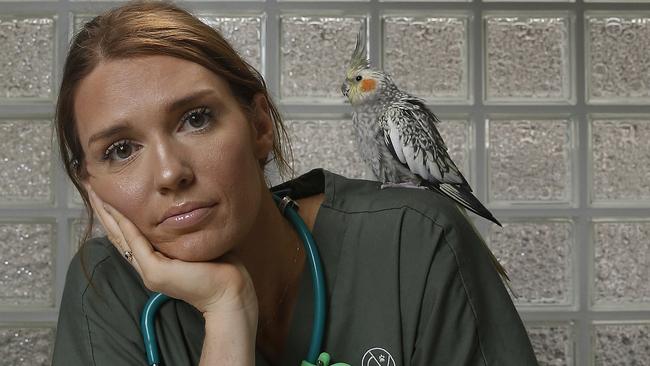
‘JACK OF ALL TRADES’
Dr Crawford says it takes a big toll on highly trained vets when they aren’t able to provide the standard of care they would like to due to cost restraints.
“It makes it incredibly upsetting when clients say they don’t care about animals because they don’t provide treatment for free,” she says.
“Vets do the job because we really care about what we do. It’s absolutely not for the money, but we have to make a livelihood. But they also care about their reputation.”
Cammeray vet Dr Jennifer Millar says a vet needs to be a jack of all trades.
“In the human medical world, you have specialists for all the different steps, but there’s a lot of pressure for vets to know a lot and be really highly skilled,” Dr Millar says.
“A lot of our upset and when we become dissatisfied with work is when we have to defend why charges are what they are.
“We’re there for end of life and that can be an emotional toll, especially if you’re unlucky enough to get a few in a row. I think every vet knows somebody in the industry who has committed suicide. I do, and it’s devastating.
“I’m very lucky that I’m not affected personally, and my clients are incredible, but it’s a significant issue facing the industry.”
Australian Veterinary Association president Dr Bronwyn Orr says Australia is No.1 in the world in terms of pet ownership.
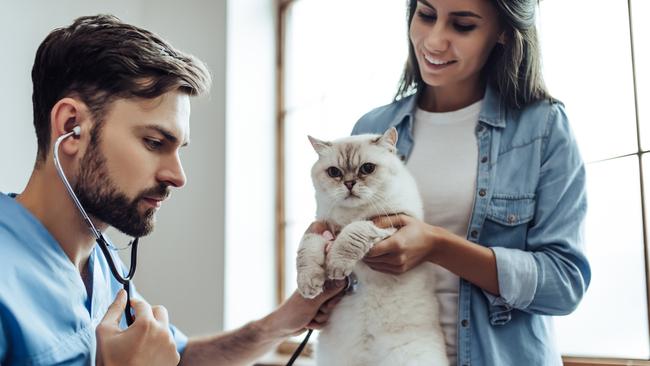
She says clients sometimes feel guilty in emergency situations, such as if they’ve accidentally run over their pet or it’s got into the medicine cabinet.
“There’s so much emotion associated with that event that they aren’t necessarily on their best behaviour,” she says.
“And, unfortunately, there’s a cost associated with care. Sometimes people can’t afford it or it’s going to push them to their limit. When they have to have a conversation about money, that can cause a pretty dynamic situation.
“We try to give people grace, especially if it’s particularly upsetting.”
LIFELONG PASSION
Dr Orr says most vets decide it’s what they want to do when they are three or four years old, and it’s a lifelong passion.
“It can touch a nerve when people throw accusations around because we do generally try to do our best to come up with solutions for owners,” she says.
“Sometimes we get clients who bring pets in for what we call ‘convenience euthanasia’. Those can be ethically challenging and that can be stressful.”
The factors contributing to vets’ poor mental health are complex, Dr Orr says, including the fact that they have a low salary and high debt ratio.
In Australia, it takes five to seven years of university study to become a vet, and they graduate with a $50,000 HECS debt.
“For some it’s upwards of $100,000,” Dr Orr says. “The average salary is $75,000, so a lot of vets struggle to pay off their debt in their lifetime. Around 85 per cent of graduates are female and if they take time off to have kids or go part-time, they aren’t even making the threshold to pay off their HECS debt.
“We have quite high attrition rates between five and 10 years after graduation.”
The issue is also leading to vet shortages, with clients sometimes waiting three or four days to get an appointment.
“I have heard of some clinics that have shut their books completely, they’re not accepting new clients,” Dr Orr says. “It really affects the community.”
Dr Orr says vets are hardworking people with type A personalities who put their patients and clients first.
“Often there’s not that much left at the end of the day for the vets and vet nurses,” she says.
“That’s something that we’re trying to correct.”
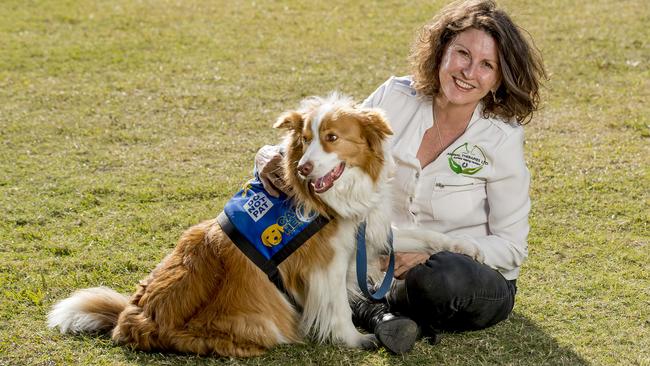
CALLS FOR STRATEGY
The AVA is developing an industry framework for veterinary mental health and is hoping to secure federal government funding to develop a strategy.
Animal health business Elanco has also partnered with health promotion charity Animal Therapies Limited on a pilot program to provide new and innovative animal-assisted services and therapy for vets and veterinary science students to address the mental health issues in the industry.
“Obviously people who are working in that profession are working with animals, but there’s stress and even trauma associated with working in that profession,” Animal Therapies Limited director Wendy Coombe says.
“Some people who won’t go into a room-based setting (for counselling) may be willing to go into a paddock or somewhere outdoors with a practitioner working with animals.
“There’s evidence that motivation for these people to come back and seek treatment is higher.”
Another initiative is Flynn’s Walk, an annual event created to honour veterinarian Dr Flynn Hargreaves, who took his own life in 2018, and raise awareness about mental health and suicide in the industry.
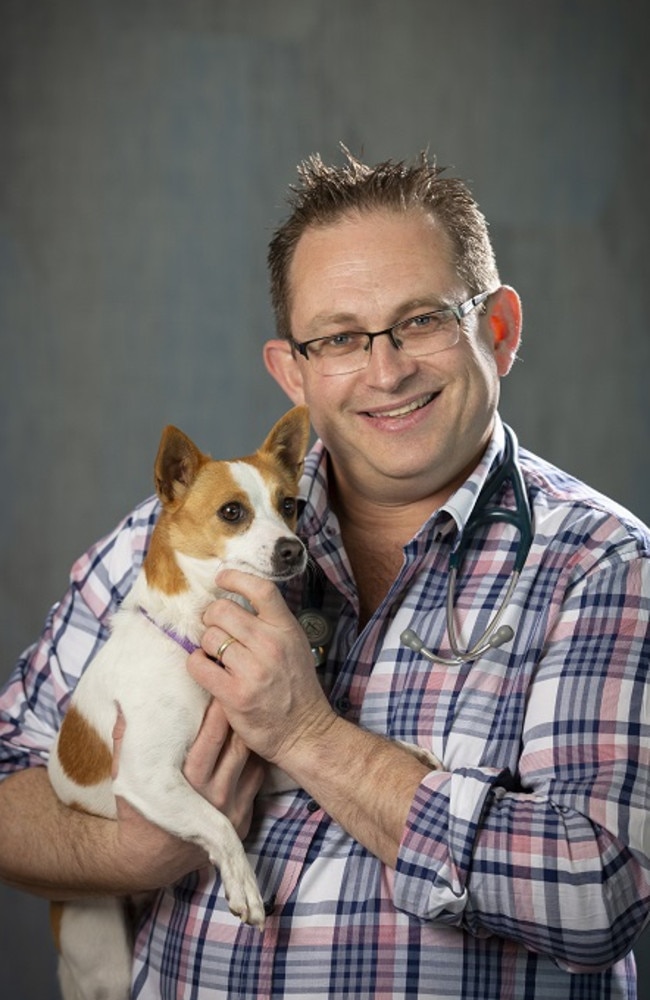
“It’s an opportunity for the profession to come out as one to work it out and walk it out and for the public to support the profession,” North Shore-based Greencross Vets regional clinical director Dr Adam Sternberg says.
Greencross, which supports the walk each year, has 160 clinics around the country, including at Coogee, Maroubra and Alexandria in the east and North Turramurra, Chatswood and Roseville in the north.
“I think there are a lot of things that affect vets’ mental health,” Dr Sternberg says.
“Putting pets to sleep is one of them. We never like to do it.
“Vets love to help. We’re very compassionate people. We don’t like saying no to people. When clients can’t see us, they get frustrated, but there’s only a certain number of hours in the day.”
For more information on Flynn’s Walk, visit flynnswalk.com.au
If you or someone you know are feeling overwhelmed, phone Lifeline on 13 11 14 or visit lifeline.org.au


